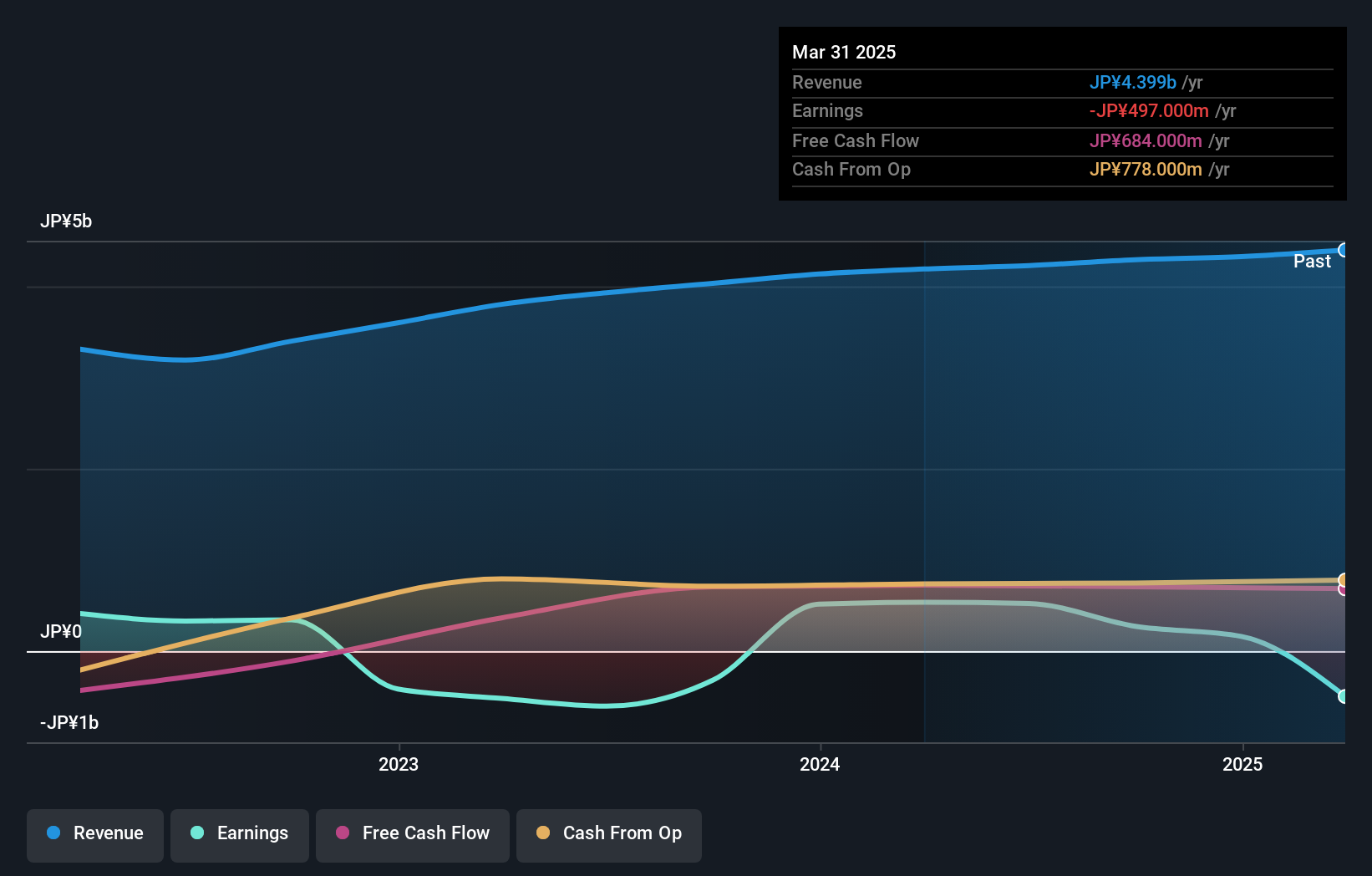AI inside Inc.'s (TSE:4488) most bullish insider, CEO Taku Toguchi must be pleased with the recent 19% gain

Key Insights
- AI inside's significant insider ownership suggests inherent interests in company's expansion
- A total of 2 investors have a majority stake in the company with 54% ownership
- 17% of AI inside is held by Institutions
Every investor in AI inside Inc. (TSE:4488) should be aware of the most powerful shareholder groups. We can see that individual insiders own the lion's share in the company with 52% ownership. Put another way, the group faces the maximum upside potential (or downside risk).
As a result, insiders were the biggest beneficiaries of last week’s 19% gain.
In the chart below, we zoom in on the different ownership groups of AI inside.
View our latest analysis for AI inside

What Does The Institutional Ownership Tell Us About AI inside?
Institutional investors commonly compare their own returns to the returns of a commonly followed index. So they generally do consider buying larger companies that are included in the relevant benchmark index.
AI inside already has institutions on the share registry. Indeed, they own a respectable stake in the company. This suggests some credibility amongst professional investors. But we can't rely on that fact alone since institutions make bad investments sometimes, just like everyone does. If multiple institutions change their view on a stock at the same time, you could see the share price drop fast. It's therefore worth looking at AI inside's earnings history below. Of course, the future is what really matters.

AI inside is not owned by hedge funds. With a 47% stake, CEO Taku Toguchi is the largest shareholder. With 6.3% and 3.8% of the shares outstanding respectively, Rakuten Investment Management, Inc. and Asset Management One Co., Ltd. are the second and third largest shareholders.
A more detailed study of the shareholder registry showed us that 2 of the top shareholders have a considerable amount of ownership in the company, via their 54% stake.
While studying institutional ownership for a company can add value to your research, it is also a good practice to research analyst recommendations to get a deeper understand of a stock's expected performance. Our information suggests that there isn't any analyst coverage of the stock, so it is probably little known.
Insider Ownership Of AI inside
The definition of company insiders can be subjective and does vary between jurisdictions. Our data reflects individual insiders, capturing board members at the very least. Company management run the business, but the CEO will answer to the board, even if he or she is a member of it.
I generally consider insider ownership to be a good thing. However, on some occasions it makes it more difficult for other shareholders to hold the board accountable for decisions.
It seems that insiders own more than half the AI inside Inc. stock. This gives them a lot of power. Given it has a market cap of JP¥16b, that means they have JP¥8.5b worth of shares. It is good to see this level of investment. You can check here to see if those insiders have been buying recently.
General Public Ownership
The general public, who are usually individual investors, hold a 28% stake in AI inside. This size of ownership, while considerable, may not be enough to change company policy if the decision is not in sync with other large shareholders.
Next Steps:
It's always worth thinking about the different groups who own shares in a company. But to understand AI inside better, we need to consider many other factors. For instance, we've identified 2 warning signs for AI inside that you should be aware of.
Of course this may not be the best stock to buy. So take a peek at this free free list of interesting companies.
NB: Figures in this article are calculated using data from the last twelve months, which refer to the 12-month period ending on the last date of the month the financial statement is dated. This may not be consistent with full year annual report figures.
New: Manage All Your Stock Portfolios in One Place
We've created the ultimate portfolio companion for stock investors, and it's free.
• Connect an unlimited number of Portfolios and see your total in one currency
• Be alerted to new Warning Signs or Risks via email or mobile
• Track the Fair Value of your stocks
Have feedback on this article? Concerned about the content? Get in touch with us directly. Alternatively, email editorial-team (at) simplywallst.com.
This article by Simply Wall St is general in nature. We provide commentary based on historical data and analyst forecasts only using an unbiased methodology and our articles are not intended to be financial advice. It does not constitute a recommendation to buy or sell any stock, and does not take account of your objectives, or your financial situation. We aim to bring you long-term focused analysis driven by fundamental data. Note that our analysis may not factor in the latest price-sensitive company announcements or qualitative material. Simply Wall St has no position in any stocks mentioned.
About TSE:4488
AI inside
Develops and provides artificial intelligence and related information services in Japan.
Excellent balance sheet very low.
Market Insights
Community Narratives



